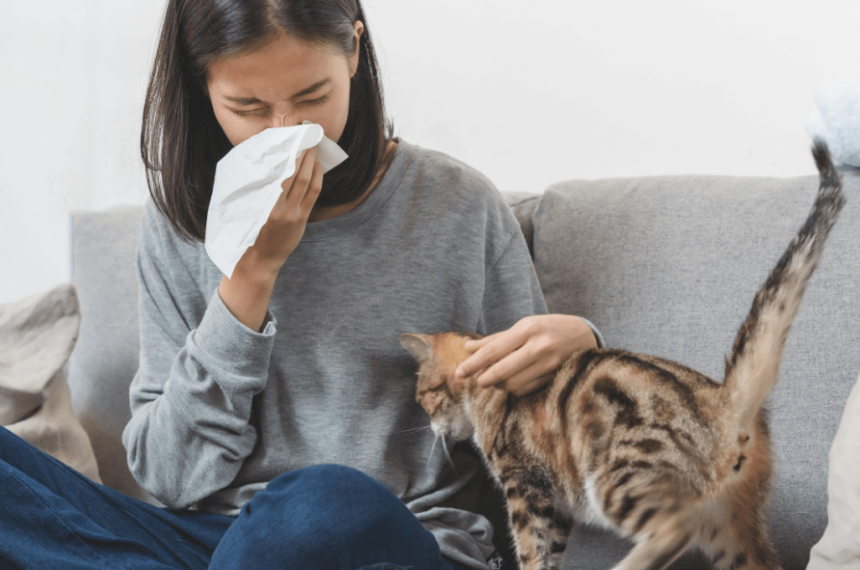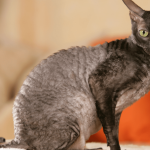Cat allergy, or pet allergy, is a disorder that often occurs in some people. As a result of the combination of some bacteria in the saliva, feathers, skin rashes and even urine of cats with other bacteria by air, the cat-infected allergy does not occur only as a result of contact with the cat.
Although it is nice to feed a cat at home, it can cause cat allergies in some people. Cat allergy, which can be seen especially in infants, children and adults who do not have a strong immune system, is manifested by some symptoms such as coughing, itching, redness in the eyes.
Especially not to get cat allergies street cats you have to be careful when you love. With the cat you feed at home game after playing, you should wash your hands with soap.
What is Cat Allergy?
Cat allergy is a condition in which some symptoms appear after contact with the cat. But only contact with the cat does not cause cat allergy.
Some bacteria found in the saliva, feathers, skin rashes or even urine of cats can be transmitted to humans from the inhaled air by mixing with the air and, as a result, combining with other bacteria.
After some time of playing with your cat; if you are experiencing conditions such as sneezing, coughing, redness, nasal congestion, eye-painting, you may have probably caught a cat allergy.
Cat allergy can also manifest itself in the absence of a cat in the environment. Especially those who work in open areas are at risk of cat allergies.
If cats come to your area, here they are mama if they eat, drink water, they may also experience cat allergies as a result of mixing some of the harmful proteins in their saliva with air and other harmful bacteria.
In people with low immune systems and allergic reactions to cats, cat allergy, which is more common in young children, is seen earlier in people with asthma and chronic disease.
You may be interested: Top 8 Cat Scratching Boards That Support Pati Health
What Are the Causes of Cat Allergy?
Cat allergy is a disorder that is mostly seen in humans due to genetic predisposition. Genetically, asthma in the family occurs more often in people with respiratory problems, such as bronchitis. In addition, cat allergies can be seen more often in people who are allergic to other animals.
Cat allergy, which is often seen in people who feed pets, is mostly caused by being in contact with the cat. If your cat is constantly playing games and you do not do personal cleaning after playing, it is easier to catch a cat allergy.
Expert veterinarians state that every cat owner who is at risk of cat allergy or does not carry it should wash his hands and face after playing with his cat.
What Are Cat Allergy Symptoms?
Cat allergy symptoms vary from person to person. While the body shows more symptoms in people who are more sensitive to it, it can manifest itself with fewer symptoms in people who do not have hereditary chronic disease in their family.
Symptoms of cat allergy in general include;
- Sneezing
- Ageing of the eyes, the,
- Nasal congestion,
- Symptoms of allergic rhinitis (living in the eyes, itching, redness),
- Pain in the sinus area,
- Shortness of breath, chest tightening,
- Skin rash,
- Hives,
- Anaphylaxis (allergic shock).
As we mentioned above, cat allergy symptoms can vary from person to person. Although anaphylaxis (allergic shock), which we mentioned in the last substance, is rarely seen, this symptom is an allergic reaction seen in the whole body of the person.
Allergic shock is a condition that requires immediate intervention. It is a dangerous situation that can even cause death if there is no treatment in the early period.
Allergic shock, not only visible in cat allergy, cat bite or cat rake it is a symptom that can manifest itself in such cases.
The Asthma Effect of Cat Allergy
In recent years, there have been significant increases in the number of people with asthma disease. This is especially common in young children. One of the biggest downsides of cat allergy is that it causes asthma exacerbation in people with asthma.
Although the cat is not fed at home, some children can have an asthma exacerbation. This may be because children come into contact with cats on their way to school or breathe air. Expert veterinarians note that children with asthma should not be introduced to cat environments.
Is There a Cat Who Doesn't Have Allergies?
In some sources or companies that sell pets, hypoallergenic cat ads are made. However, according to research, it is stated that there is no cat breed that does not cause allergies.
in the past, some cats played with genetics in America were said to be hypoallergenic and sold at high prices. Before the sale of cats, of course, serious advertising costs were spent and it was said that they were 96% hypoallergenic in advertising.
But major institutions such as the American Academy of Allergy, Asthma and Immunology, and the American College of Allergy, Asthma, and Immunology, which conduct research on the subject, argue that there is no scientific data on cats that do not cause allergies.
Although the sale of pets is prohibited, especially sellers who want to trade this business and earn more money suggest that some cat breeds do not have allergies. The above mentioned institutions and specialist veterinarians also argue that there is no hypoallergenic cat breed.
Usually hypoallergenic cats the explanation for this is that allergy-causing allergies (Fel d 1 and Can f 1) are not made as a result of mutation in cat genes.
Source: 8 Cat Breeds With Hypoallergenic Fur
But as we mentioned, these explanations are a situation that has no reality except for the purpose of creating a cat market and achieving high profits.
What Are Cats Who Do Not Have Allergies?
Although not based on scientific data, it is said that some cat breeds do not have allergies. These cats;
- Siberian cat
- Balinese cat (Bali cat)
- Bengal cat
- Burmese Cat
- Sphink Cat
- Russian Blue
- Oriental Shorthair
- The Devon Rex
- Cornish rex hotel
- The javanese cat
Most cats we have listed above are said to produce Feld 1 allergen (common cat allergen) while they are hairy. However, we do not take this responsibility on us, we want to state that research should be done in detail and it should be decided to adopt a cat.
In addition, cat allergy is not just a disease transmitted from cat hair, as we mentioned at the beginning of our article. Although Feld 1 is said to produce the allergen, it causes cat allergies from cats' saliva, skin rash or harmful airborne bacteria. The fact that the cat is hairless does not change this situation.
How Is Cat Allergy Diagnosed?
People who experience cat allergy symptoms should see an allergist as soon as possible, taking into account the severity of the condition. The specialist doctor checks the necessary condition and asks the patient to perform a urine or blood test. As a result of the tests, it is determined whether the person has a cat allergy.
Usually “deri prick test” is done to diagnose cat and dog allergy. This test is the most effective method used to diagnose allergic conditions.
How is Cat Allergy Treatment Performed?
The most effective method of treating cat allergies is to stay away from cats. As we mentioned above, if there is an inherited respiratory problem, not taking a cat home will be the best solution. Deciding whether you have an allergic condition before the cat is adopted also eliminates the risk of cat allergies.
It is also important that people with cat allergies change their quality of life for treatment. Procedures such as removing the cat from the house, necessarily personal cleaning after contact with the cat are effective methods in preventing cat allergy.
What happens to those with cat allergies?
In people with cat allergies; symptoms such as nasal congestion, tear, cough, redness and itching are seen.
Is cat allergy dangerous?
Cat allergy is not a very dangerous condition. However, rarely anaphylaxis, that is, allergic shock conditions can be experienced. Allergic shock can also lead to death if not treated early.
What should cat allergy do?
People with cat allergies; Antihistamines, Corticosteroid nasal sprays, Non-prescription decongestant sprays such as should use supplements that alleviate allergic reaction.










